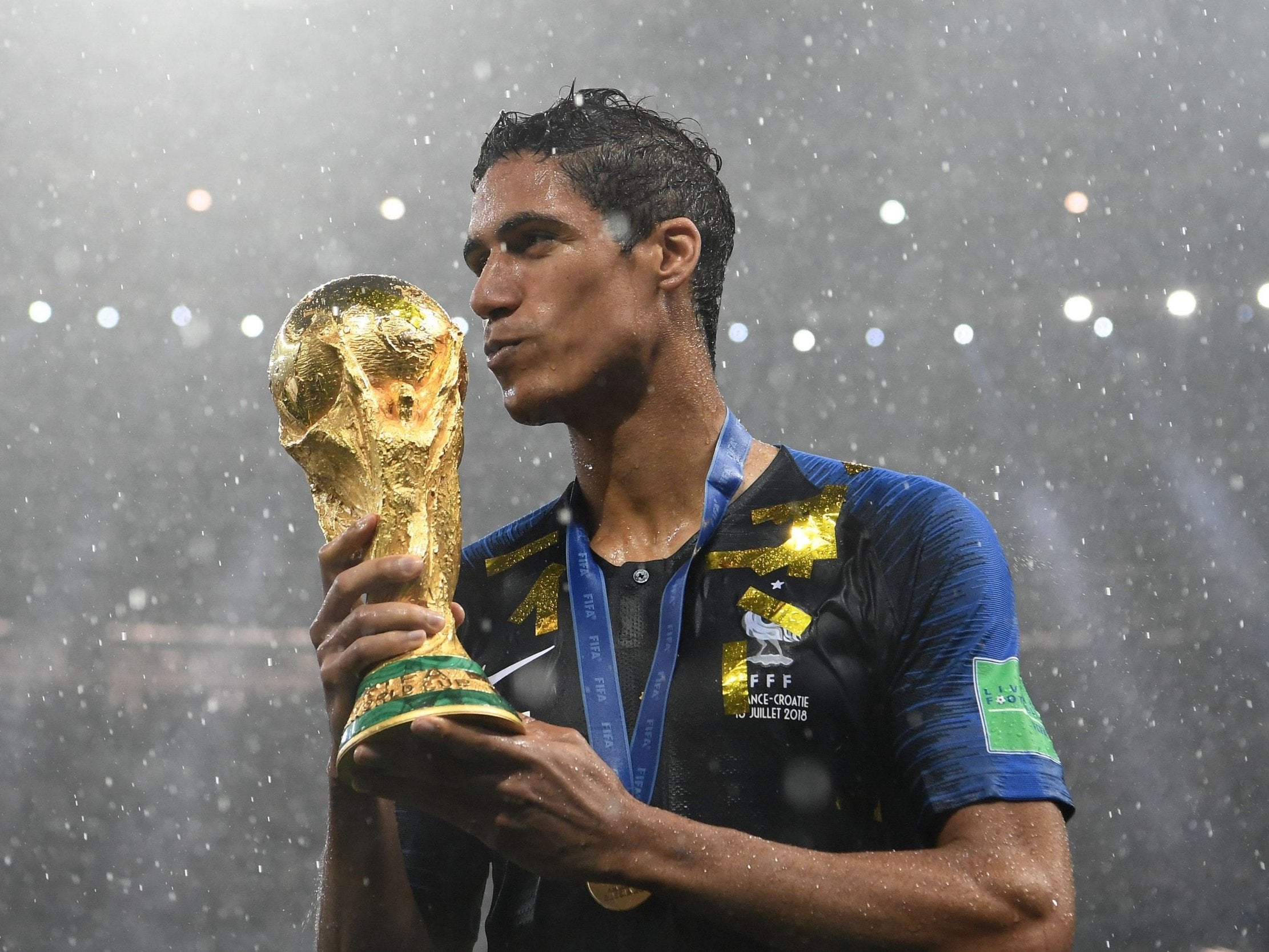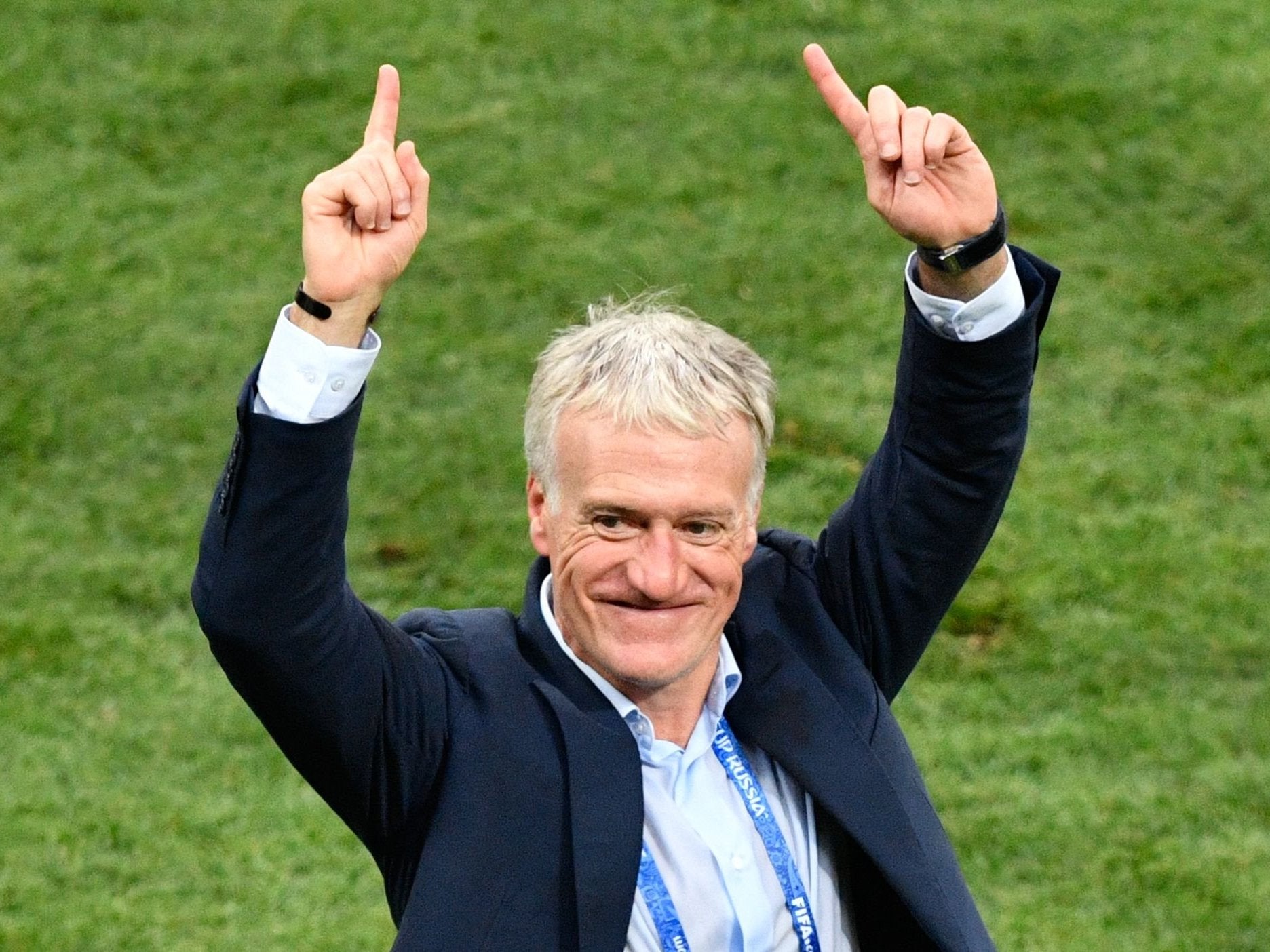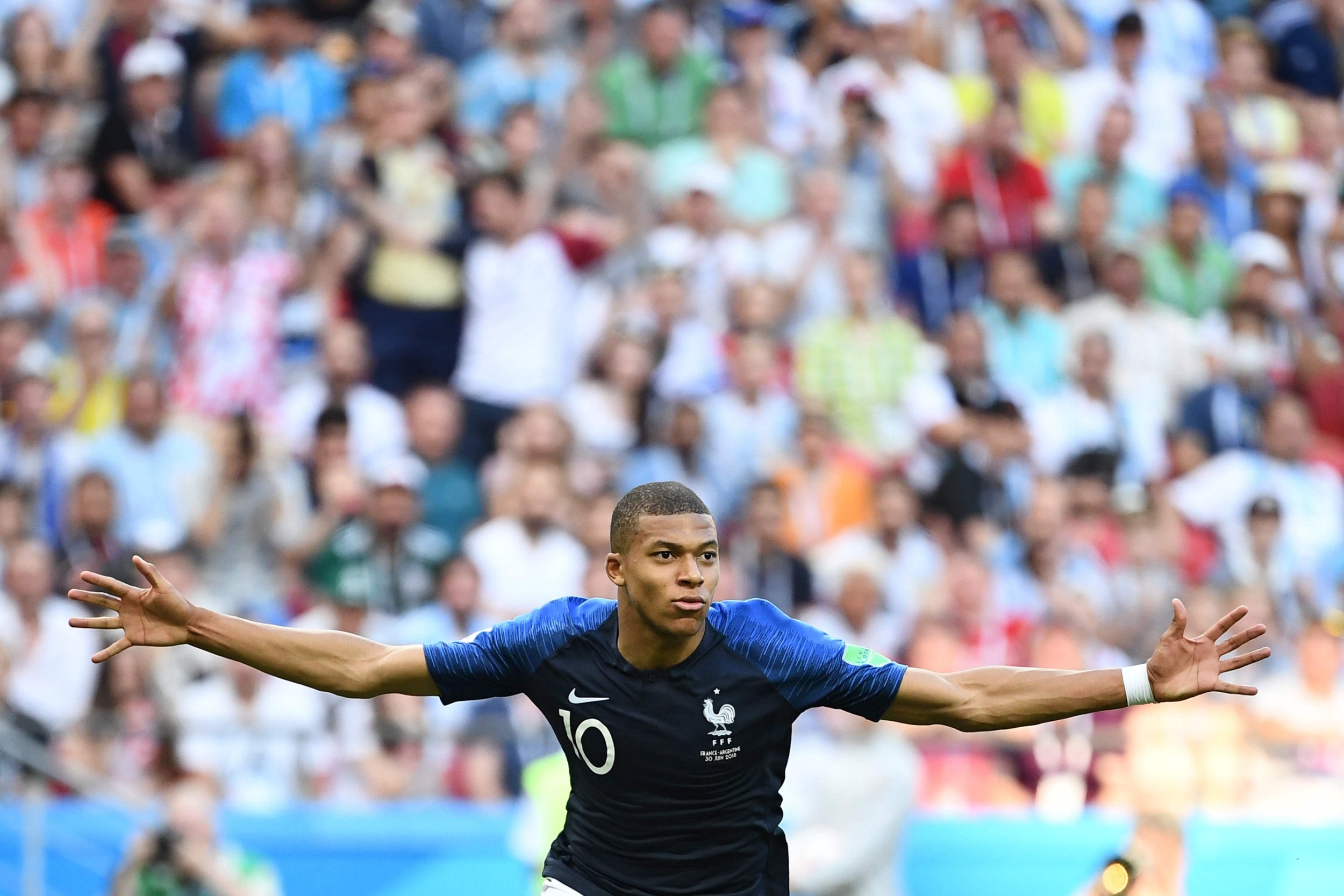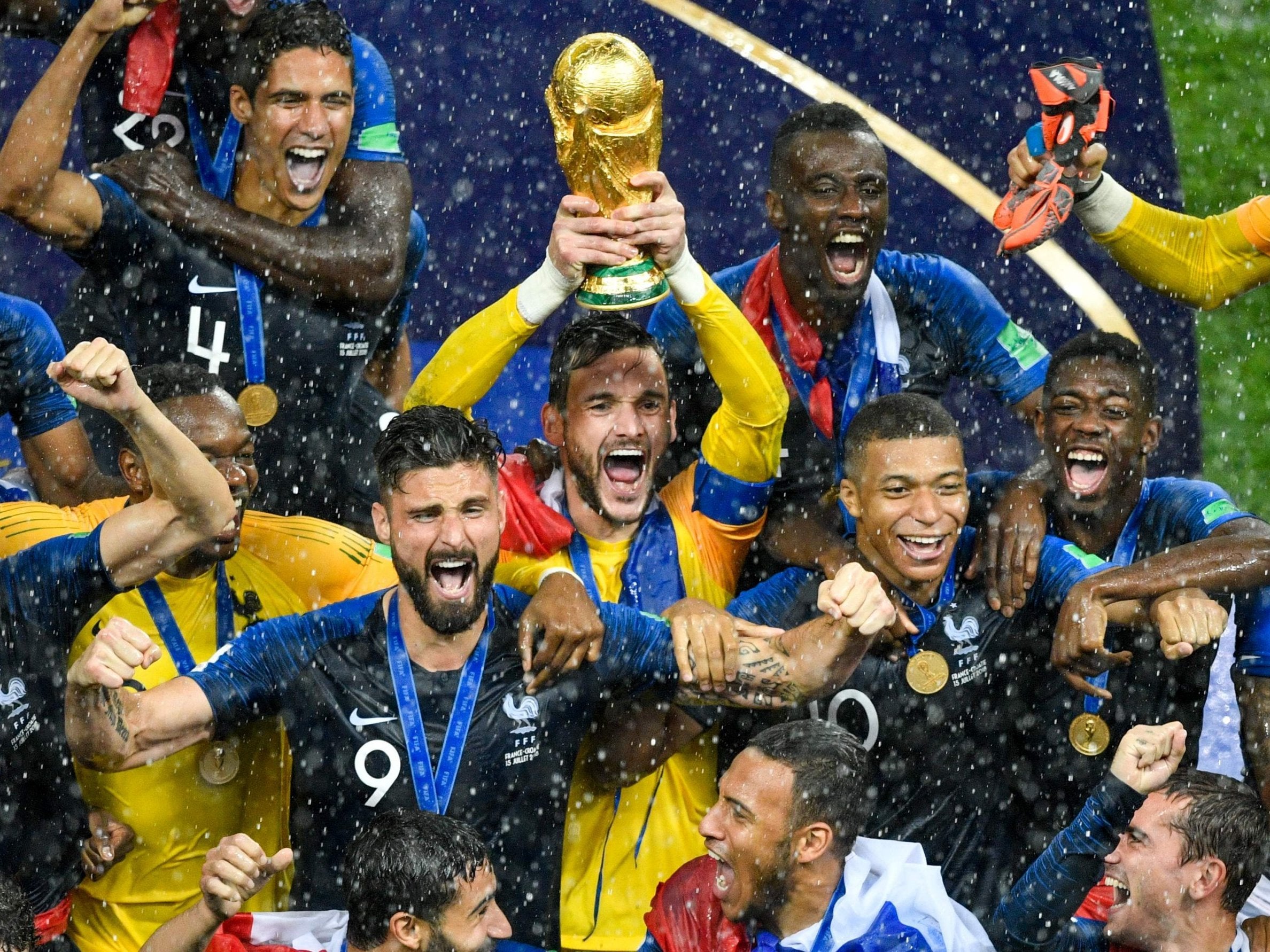By the time the boisterous French squad finally emerged from the music-shaken walls of their Luzhniki Stadium dressing room, there were many questions for the new world champions, but one of the most elementary was about who had the honour of carrying that unique trophy. It ended up being Raphael Varene, who didn’t so much carry it as so protectingly cradle it.
It was a somewhat fitting image given how brilliant he’d been to the cast-iron defence that was so essential to France, but the images of the centre-half so assuredly heading balls away or effortlessly winning them back are not quite glamorous enough to fill the images when it comes to illustrating these World Cup winners in future. Those will likely be the glorious strikes by Paul Pogba and Kylian Mbappe, that fully settled the final of Russia 2018 against Croatia, after the refereeing calls that effectively decided it.
As to how they’ll be remembered, though, that’s a different story.
Because the real story as to why France are once more world champions is not the decisions, it is not the resilience, it is not Didier Deschamps’s tactics or even some supreme individual performances like those of Varane, N’Golo Kante, Pogba and – of course – Mbappe.
It is really about the collective structure that ensured these brilliant talents are brought together. Just like Spain and Germany before them, France are the latest wealthy well-populated western European country to mass-industrialise talent production.
That gives them an immense advantage, and by far the best squad in this World Cup bar Spain and Germany, who both endured freakishly bad tournaments.
And that does give rise to a genuine question about this France’s legacy, and where they stand alongside sides like Spain 2010, Germany 2014 and all of their prestigious winning predecessors. Many might immediately say here that the ultimate answer to any question is that gold trophy, but that’s the point. It’s now been lifted, so the debate is over where it lifts them into the pantheon – how they’ll be remembered.
That is of course part of what makes the World Cup so prestigious, the gravitas of history that has gradually become even more pronounced because it is only every four years.

And that is also why this French won’t look quite as superior in history as they did in this tournament.
Deschamps had by far the best squad and best attacking talent in the competition after the last 16, and yet he applied the approach of a small country that just don’t have such stars. He played reactive constrained football that sought to suppress play rather than release it.
This isn’t even an aesthetic debate, although that is something that should come into it when we get to wider debates about legacy.
It’s just how else do you describe a final when it was the team from a country of just over 4m people that played all the football, and at one point had 61 per cent possession? That is as relevant as the fact they didn’t need extra-time in a single knock-out match, or that they somewhat incongruously scored four against both Argentina and Croatia, but that raises another relevant point - especially when they have a squad as resoundingly brilliant as this.
“France didn't play football,” Dejan Lovren argued, echoing the Belgian players. “They waited for their chance and they scored. They had their one tactic and you have to respect it. They played every game of the tournament like that.”
For comparison, no one came out like Croatia did – or like Argentina did in the last-16 – against Spain in 2010, because they so feared what they could do to them in attack. And when teams did try this against Germany in 2014, as Portugal did, they got eviscerated.
That does point to a big difference between these world champions, and why it feels like there is still some difference between the constrained standard of France’s football and the standard their players are capable of; why their legacy doesn’t feel like it will be that far-reaching.

Spain had such a supremely defined idea of how to play that they came to symbolise an entire tactical era of proactive football, while the Germans took that on while adding their own elements.
There wasn’t either of that with France, and it’s hard to say whether Deschamps actually had a tactical idea at all, let alone the kind of grandiose idea that really makes a legacy; that really makes you remembered; that really echoes in the game.
How would you describe his approach?
It was essentially keep things compact and concretely secure through defence and midfield, while letting Antoine Griezmann float and Mbappe run.

And that meant that, as exhilarating as Mbappe was, and as brilliant as Pogba’s goal in the final was, more illustrative of France’s entire approach was Pogba winning headers rather than this game and their defence giving up so little. Try, for example, to pick their player of the tournament. The exacting destruction of Raphael Varane and Kante were as important – if not more – than the excitement of Mbappe.
It was of course effective... but there was nothing special about it, nothing that transcended this triumph.
There was nothing even really new about it, since it was very similar to what we saw in 1998 under Aime Jacquet without the co-ordination in attacking midfield, and that is doubtless where Deschamps got the idea. He just continued what he knew.
But that does raise another point about France, why their legacy may not be complete, and why they might yet rise more.
Although France had mostly won the World Cup through doggedness and resilience in 1998, the confidence and assurance that came from that victory did see a huge release for Euro 2000, to the point there was a quantum leap in their play. That side did then become one of the best ever.

Similar may well happen here, especially given their youth and given that the pain of Euro 2016 undeniably influenced everything at Russia 2018.
That defeat is now consigned in the past. The present is the most prestigious victory of all. The future should be now about properly embellishing that place in history.







